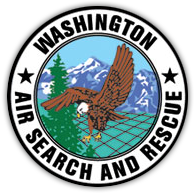Membership
Many types of positions and skills are needed to accomplish air search and rescue/disaster relief missions. Mission pilots and observers are the first that obviously come to mind. Equally important, however, are the “behind the scenes” volunteers who work in support roles; dispatchers, documentation specialists, communication and computer specialists, logistics people, planning people, scribes, and all the people needed to assist the department heads. Some of these positions take experience, others are entry level. All of them require formal training long before you ever reach a search base. We also need a few people who cannot necessarily go to search bases, but who can support us from their homes by making call-outs for the next day’s missions, acting as a contact for our people calling in for information, etc…
If you are interested in joining WASAR, the first requirement is attendance at an informational meeting to learn about air search and rescue as it is conducted in Washington State and the time commitment involved. You can find the dates of the upcoming informational meeting by viewing the training page.
You will be notified within a few weeks if your application has been approved. Once you receive this notification, you will need to register for a WSDOT Orientation Meeting. Everyone, regardless of the position they intend filling, needs to take this course prior to their specialty training. At this point, you will also be given an emergency worker badge with a “general” classification noted on it.
Once prospective members have attended the WASAR orientation meeting, successfully completed ICS courses 700 and 100 online, and completed first aid and CPR training, they will be given the WSDOT-Aviation Division emergency worker application. Once completed, this application will begin the process that starts with the background checks conducted by the Aviation Division. These background checks are required of all emergency workers in the state and include driving records, criminal background, and FAA records.
Training opportunities occur throughout the year that will prepare you for actual missions. In addition to actual flight and mission coordination training, there are also specialty courses in direction finding, navigation, and wilderness survival, among others.
